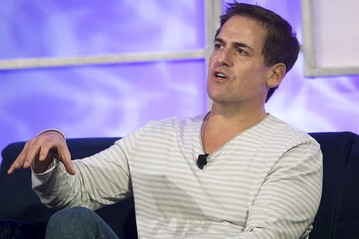Shark Week was last week and I am not talking about the GOP Convention. But Financial Shark Week is being resurrected this week in the Wall Street Journal and the NYTimes. It started with Andrew Ross Sorkin noting in the Dealbook section of the NYTimes, that Facebook’s IPO-Initial Public Offering of stock was priced too high :
Now, three months after the offering, the company has lost more than $50 billion in market value. Let me say that again for emphasis: Facebook’s market value has dropped more than $50 billion in 90 days…A lot of ink has been spilled over Facebook’s I.P.O., with investors and pundits mostly pointing the finger at the Wall Street banks, particularly Morgan Stanley, which led the offering, and at Nasdaq, whose numerous computer glitches on Facebook’s first day of trading undermined confidence in the stock. They clearly deserve blame.
Mr. Ebersman’s name, however, is mentioned only occasionally, usually in passing and typically only among Silicon Valley’s cognoscenti. And yet if there is one single individual more responsible than any other for the staggering mispricing of Facebook’s I.P.O., it is Mr. Ebersman. He signed off on the ever-increasing offer price, which ended up at $38 after the company had originally planned a price range of $28 to $35.
He — almost alone — pushed to flood the market with 25 percent more shares than originally planned in the final days before the offering. And since then, as the point person for investors, he has done little to articulate how or why the company’s strategy will lift the stock price any time soon.
At a time when investors are looking for some semblance of accountability on Wall Street and in corporate America, it is remarkable that nobody — no bankers, no one at Nasdaq, no one at Facebook — has been fired for botching the offering.
What Alan Sorkin is calling for is an IPO that is priced like most – they reward the initial shareholders with a share price that allows for a stable 10-15% price gain a week or two after the IPO date. This is an incentive for the players who brought the shares too market and invested in it. This is how Wall Street traditionally prices IPOs.
But the WSJ ran the following quote from Mark Cuban, among other things, Dallas Mavericks owner:
Have you ever been to an auction where the selling party told a buyer to reduce their price because they were worried that the item might not hold its value ? Neither have I. If the CFO of Facebook came on SharkTank and told me that he was able to sell his shares to the public for $38 a share, but turned down the opportunity, I would crush him for being an idiot.
Facebook was able to raise about 10 BILLION DOLLARS in this IPO. The CFO’s job is not to manage shareholder portfolios. His job is to help Facebook succeed. I don’t know about you, but putting 10 BILLION DOLLARS in the bank in my opinion is one way to help them succeed.
In effect Mark Cuban echoes the current Walls Street sentiment – do not expect anything from the Street but every effort to maximize immediate gains. Not quite “take what the Muppets give you and steal the rest” which Goldman Sachs + John Paulson did on some massive derivative sales in which Paulson was able to pick loser securities which he was betting against to be sold to Goldman clients; but rather the new IPO strategy – price the IPO so high that losses in stock value are inevitable in the first earnings report after the IPO. Change the way the IPO game is played – making the issuing company and underwriters winners and everybody else losers.
All Things D, another WSJ property, headlines a link to the following story:
An Adaptation of Andrew Ross Sorkin’s Ridiculous Ebersman Article
where we are treated to the following rewrite of Sorkin’s article:
The Man Behind Facebook’s I.P.O. Debacle Miracle
It is David Ebersman’s fault accomplishment. There is just no way around it.
Mr. Ebersman is Facebook’s well-liked, boyish-looking 41-year-old chief financial officer. He’s not as well known as Mark Zuckerberg, Facebook’s founder and chief executive, or Sheryl Sandberg, its chief operating officer and recently appointed director.
But when it came to Facebook’s catastrophe master-stroke of an initial public offering — the Company financed itself with sales of stock at more than double the price reached a new low on Friday, closing when it closed at $18.06 — it was Mr. Ebersman, not Mr. Zuckerberg or Ms. Sandberg, who was ultimately the one pulling the strings.
Now, three months less than nine years after the offering its founding, the company has lost more than $50 billion in market value. Let me say that again for emphasis: Facebook’s market value has dropped is more than $50 billion in 90 days.
Now the rewritten last paragraph by B. Tanen shows how defiantly strident the tone is. Sorkin is trying to show how badly the IPO went after its intial offering and how different this is from IPO norms. But M. Tanen insists the comparison must be made back to the company’s founding. In general business leadership and its acolytes are very testy when they can be shown to be making self-serving decisions over broad company stakeholers interests[customers, employees, suppliers and shareholders].
Is this Business as Sharks the new normal in Business? Are books like The Ethical Imperative: Why Moral Leadership Is Good Business
just out of favor and become passe’ within the executive suite? Or is this a further reflection of the growing antagonism between the haves [the 1 percenters] and a growing number of have-nots [ a dwindling middle class]?
